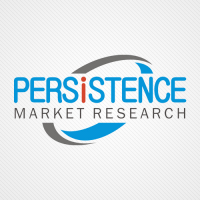Plaque Psoriasis Treatment Market Estimated to Flourish by 2017–2025: Persistence Market Research
Psoriasis increases the chances of myocardial infarction in younger psoriasis patients by three folds.

New York, NY -- (SBWire) -- 06/08/2017 --Plaque psoriasis is a chronic, autoimmune inflammatory disorder which leads to overproduction of skin cells. The skin is characterized by inflamed, raised, scaly, red plaques and lesion. The intensity and frequency of psoriasis are affected by environmental factors such as sun exposure, smoking, HIV infection, and alcoholism. Metabolic syndrome and cardiovascular disease are common in psoriasis patients. Psoriasis increases the chances of myocardial infarction in younger psoriasis patients by three folds.
Moreover, severe psoriasis leads to 3.5 years reduced life expectancy in males relative to individuals without psoriasis. Psoriasis arthritis is a distinct syndrome which occurs in one-third of psoriasis patient with the onset of rheumatic arthritis.
Psoriasis plaque are distinguished by three features, an infiltrate featuring T-cells, the extravagant growth of poorly differentiated keratinocytes and the presence of dilated dermal blood vessels. Most of the introduced therapies for psoriatic were developed as to target T-cells or their inflammatory mediators including cytokines, receptors, and ligands.
Plaque Psoriasis Treatment Market: Dynamics
The demand for plaque psoriasis treatment market is expected to boom with the increasing number of pipeline psoriasis molecule and the number of biologics being launched. Janssen Biotec is seeking for the market approval of Guselkumab. The molecule is in the Phase III trial as a subcutaneous administered therapy for the treatment of plaque psoriasis.
Moreover, Gelantin Therapeutics Inc. announced positive data from its phase 2 study of its drug GR-MD-02 to treat moderate-to-severe plaque psoriasis. The company is now seeking for strategic partnership for its drug development program.
The advent of biologics has also shifted the preference from systemic therapy to meet the existing need. The systemic therapy suppresses the entire immune system as the clinician needs to do routine laboratory monitoring because of myelosuppression, hematologic side effects and increased renal and liver toxicity. Moreover, the systemic therapy is also contraindicated in nursing mothers, pregnant women, and individuals with kidney and liver diseases.
Around 125 million people worldwide have psoriasis out of which 80%, have plaque psoriasis. The need for safe plaque psoriasis therapy in children is essential as about one-third of the psoriasis cases are in children. Etanercept was approved by the DA as an extended indicated for children of age 4 and above.
Phototherapy and systemic therapy should only be used in cases where a topical treatment is inadequate. Novel systemic treatments are now being introduced where a range of biologics are sed. The mode of treatment follows a psoriasis treatment ladder. Initially, topical treatment is given, if the skin fails to respond then phototherapy is given. The third step involves the use of systemic treatment which may be through the administration of pills or injection.
TNF-? inhibitor was the first class of biologics which were successful in delivering the treatment while still maintaining the safety profile. Enbrel was the first molecule to be approved followed by Remicade and Humira. The introduction of these molecules increased the overall sales of the psoriasis drugs and also increased the physician's comfort and familiarity.
Plaque Psoriasis Treatment Market: Region-wise Outlook
North America region dominates the plaque psoriasis market owing to the increasing approval of pipeline drugs and supplemental biologics. In November 2016, the FDA approved supplemental biologics license for the use of Etanercept for children aged four and older having moderate-to-severe plaque psoriasis. The approval is the first of its kind indicated for the treatment of adults with moderate-to-severe plaque psoriasis. Amgen had performed a year-long phase 3 study and 5-year open-label extension testing for the approval.
A Sample of this Report is Available Upon Request @ http://www.persistencemarketresearch.com/samples/16069
AsiaPacific is expected to be the fastest-growing region owing to the huge population base and changing lifestyle habits such as smoking. Moreover, the global market players are also exploring the developing market. Novartis launched its Cosentyx in Japan for the treatment of psoriasis arthritis in adults who are not adequately responding to systemic therapy.
Plaque Psoriasis Treatment Market: Market Players
Company manufacturer is converting innovative research into a new therapy by constantly investing in research activities. The number of drugs approved for plaque psoriasis is constantly increasing the number of treatment options for the physician and patients. Eli Lilly's interleukin inhibitor was approved by the FDA, second molecule to be approved after Novartis Cosentyx.
Request to View Tables of Content @ http://www.persistencemarketresearch.com/toc/16069
Some of the plaque psoriasis treatment market contributors are Allergan, Johnson and Johnson, Amgen, Abbvie, Eli Lilly, Dermira Inc., Novartis, Galectin Therapeutics, Cellceutix Corporation and Biogen Inc., Bayer.
To Know About Latest Report Click Here: http://www.persistencemarketresearch.com/market-research/plaque-psoriasis-treatment-market.asp
Media Relations Contact
Rahul Singh
Marketing Manager
Persistence Market Research Pvt. Ltd
646-568-7751
http://www.persistencemarketresearch.com/market-research/plaque-psoriasis-treatment-market.asp
View this press release online at: http://rwire.com/817672